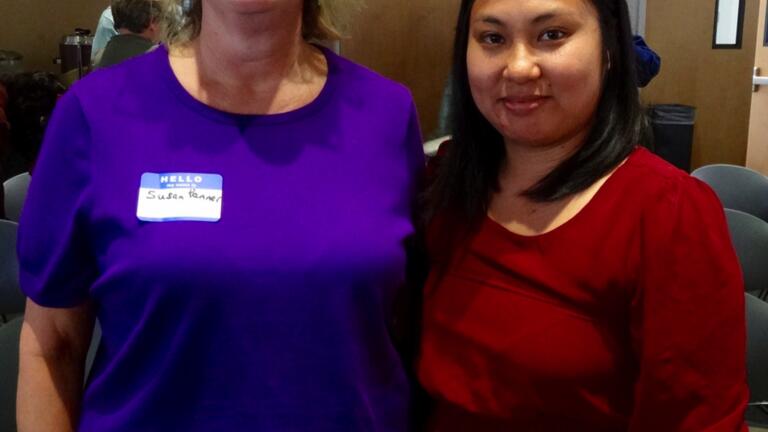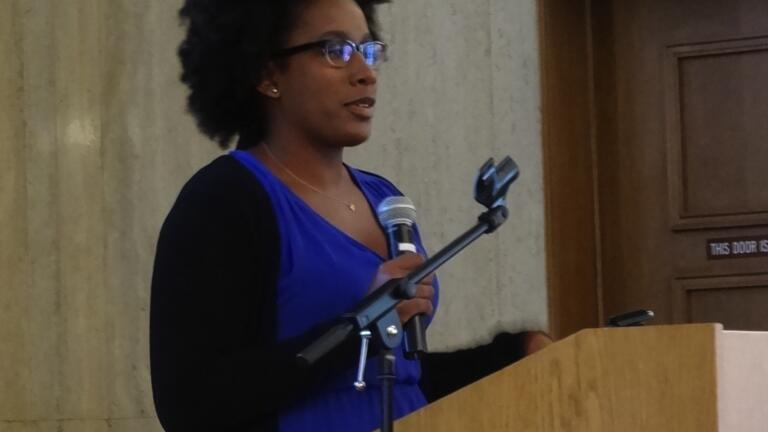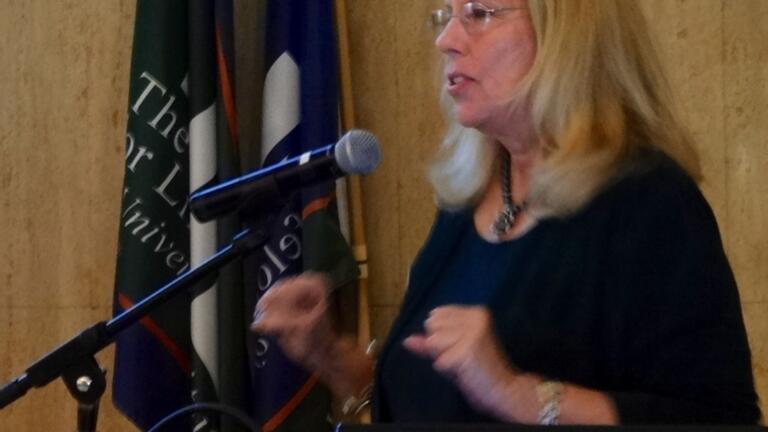Improving Care at Home: Challenges and Opportunities
Unpaid and low-paid caregivers provide up to 90% of the care provided to people who are ill or disabled but living at home.
By some estimates, 65 million individuals provide unpaid care worth up to $470 billion, more than all Medicaid spending. Often, these caregivers receive little or no training about the medical tasks they are called on to provide. In addition, caregiving takes a significant toll on those providing care — physically, emotionally and financially. As our population ages and more care is provided in the home rather than in medical facilities, these problems are expected to increase. But currently, we do a poor job of supporting these “invisible” members of the health care team.
To address this challenge, on October 24th, the School of Nursing and Health Professions held a half day conference, Improving Care at Home: Challenges and Opportunities. The program was developed in partnership with the USF Gerontology Minor, Family Caregiver Alliance, SF In Home Supportive Services Public Authority, and USF's Beta Gamma Nursing Honor Society.
Conference attendees learned about the spectrum of caregiving experiences, gaps in current services and policies, effective methods for partnering with caregivers, and the potential for new technologies to assist in making care at home easier and safer. The conference was a unique, inter-generational experience. Participants included undergraduate and graduate students, members of the Fromm Institute for Lifelong Learning, service providers from the community, and family caregivers.


